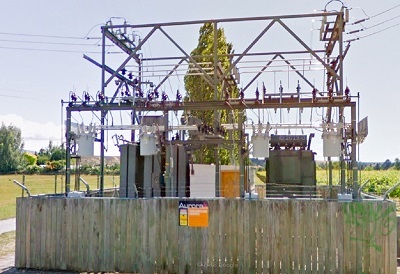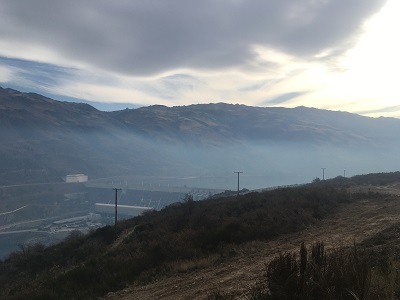Opinion: Clyde and Central Otago left out in the cold
Rowan Schindler - opinion
21 June 2020, 4:50 PM
 Last week was a bit rough for Clyde, having been left in the cold last Sunday, but Rowan Schindler argues it is just one example of how Central Otago is being left in the cold in general. Image The Central App.
Last week was a bit rough for Clyde, having been left in the cold last Sunday, but Rowan Schindler argues it is just one example of how Central Otago is being left in the cold in general. Image The Central App. Clyde has had a rough week, first it had a power outage on the coldest day in years, and then it had smog, and fog.
On Sunday, an Aurora transformer suffered a major fault, which plunged the town into eight-hours of freezing cold.
The second, backup transformer on-site was faulty too, and has been so for either a couple of years, or has never been operational by some reports.
Residents, who had been encouraged by various councils and governments to swap out their fireplaces and buy heat pumps, were suddenly left in the freezing cold with no redundancies.

The faulty transformer, which caused the Clyde blackout last week. Image contributed.
Those who ignored those calls to brick up their fireplaces turned out to be better off.
Those who heeded the encouragement and “did the right thing” are being punished by ineptitude of the Dunedin City Council owned Aurora Energy.
It was -9 degrees Celsius when the power went out at 7am, and it wasn’t returned for eight hours.
Businesses couldn’t operate, with one local café posting on social media that they couldn’t make you any food, but you were welcome to come and sit by their fireplace.
A few days later a number of Clyde locals contacted The Central App over complaints of smog.
One who wished to remain anonymous, said she was angry about the smoke blanketing the town.
After contacting The Central App, she was referred to the Otago Regional Council pollution hotline.
“Called and they have had a huge number of complaints and they ‘pass them on’ and get on to it apparently.
“In Clyde we are feeling really sensitive at the moment after Sunday’s power outage and now we are smoked out.”

The smoke above Clyde choked residents just a day after the town shivered with no electricity to power their heat pumps. Image The Central App.
The Central App contacted the Otago Regional Council over the issue which said the smoke was a result of around ten fires scattered around the area.
The ORC said, while the Clyde township is classified by ORC’s plan as Air Zone 1, the area outside the town is Air Zone 3 productive land, where the rules for outdoor burning are less strict.
ORC General Manager Regulatory Richard Saunders said residential fireplaces still contribute to the greatest amount of air pollution.
“We know from research that home-heating is a more consistent contributor to air quality issues in Otago than other factors, accounting for over 90% of particulate matter emissions in Central Otago towns, which is why ORC has pushed for cleaner home-heating solutions in recent years,” he said.
“But we also know that smoke from outdoor burning can be a significant nuisance, and can impact and compound air quality issues as it did on Tuesday.
“We encourage rural properties to plan any burn offs for when the conditions will have less impact on the town.
“Anyone undertaking outdoor burning should be considerate of the effects potential smoke will have on neighbouring properties.”
The issue is not a new one, with locals having put up with smog for years when local farms, vineyards and orchards prune and burn off their green waste, which is within their rights.
However, many feel aggrieved as in winter, the inversion layer pushes smog close to the ground during the day, instead of letting it rise and dissipate.
Many locals remember being encouraged to remove wood burning fireplaces years ago, instead being urged to buy heat pumps.
But as Sunday’s power outage proved, energy supply is not reliable.
Not only is energy security a public issue, it is also a national and civil defence issue.
Aurora Energy have failed in providing this energy security through their proven neglect of their infrastructure.
Indeed, they were fined $5 million for their failure by the High Court.
However, that cost will just be added on to our power bill at the end of the month.
And next month, and the month after that.
It’s an infrastructure network which has contributed to the death of at least one individual when a pole he was working on collapsed in Miller’s Flat due to rot.
How this failure, and the failure of the former board or top tier managers, is not criminally negligible I will never understand.
I can’t fathom how this is not a major point of debate at Government level in New Zealand, let alone regionally where it consistently flies under the radar.
Central Otago is being left out in the cold.
If you would like to comment on this, or any other news article on The Central App, please email [email protected]


